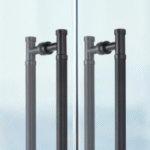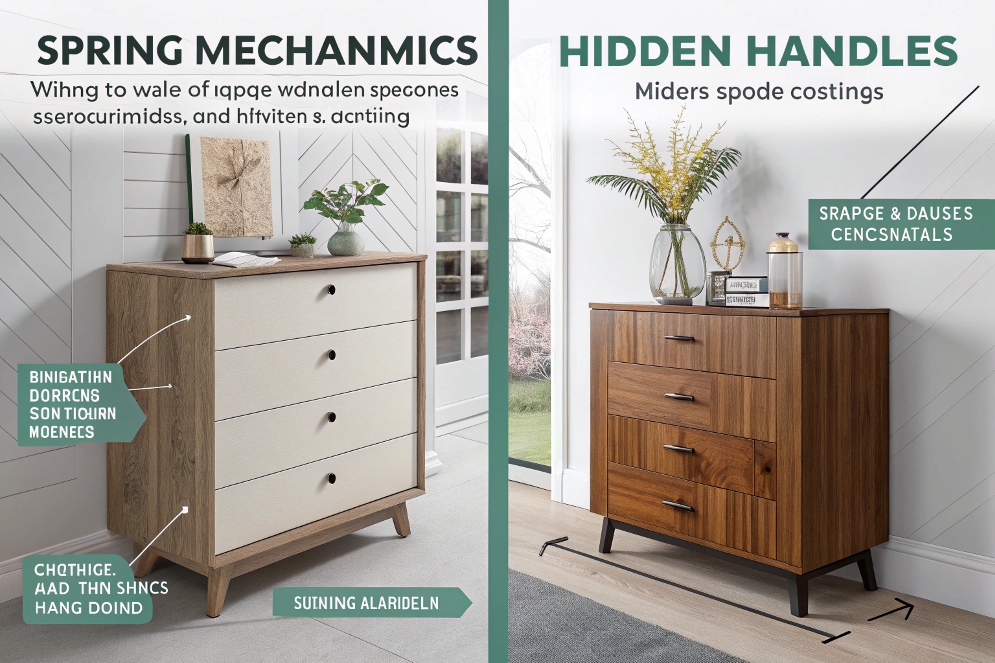
Is the spring mechanism suitable for the cabinet door?
Modern design favors clean lines and minimalism, reducing traditional handle use in cabinets.
Spring mechanisms offer a sleek look but may leave marks over time, impacting durability and aesthetics. Consider hidden handles for lasting style and function.
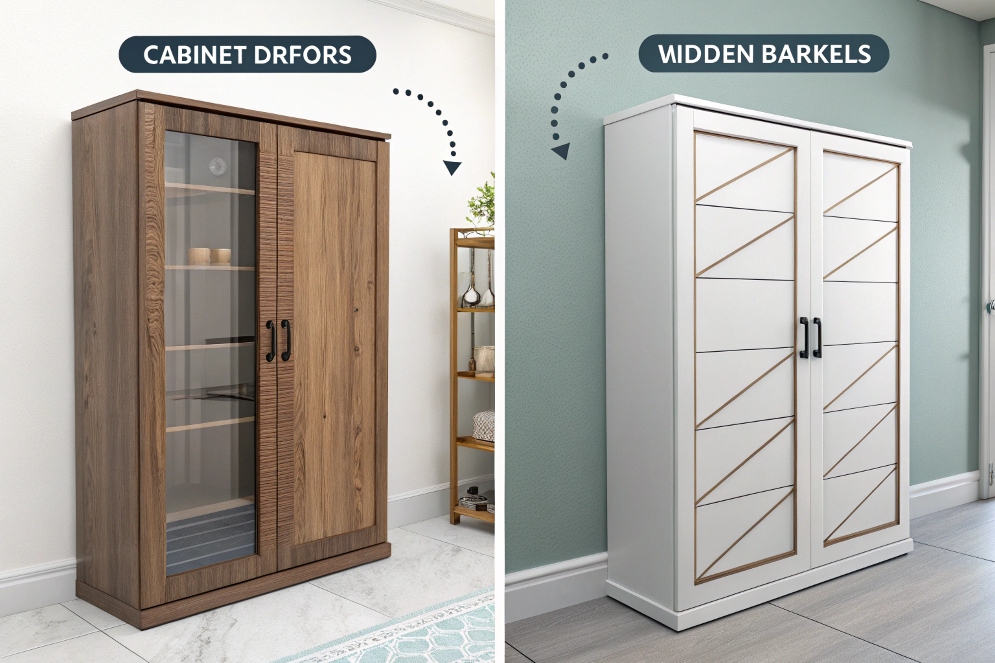
I've chatted with friends about spring mechanisms, appreciating their stylish appeal. Pressing the cabinet door makes it open without visible handles, aligning with contemporary tastes. However, frequent pressing can leave persistent marks, becoming noticeable over time. Springs also tend to have a shorter lifespan compared to traditional handles, leading to more frequent repairs. For a balance of style and durability, hidden or embedded handles might be a more reliable choice.
How to make a cabinet door stay closed?
Cabinet doors should stay securely closed for a tidy appearance and functionality.
Magnetic catches and adjustable latches can effectively keep doors shut, ensuring both safety and order in your space.
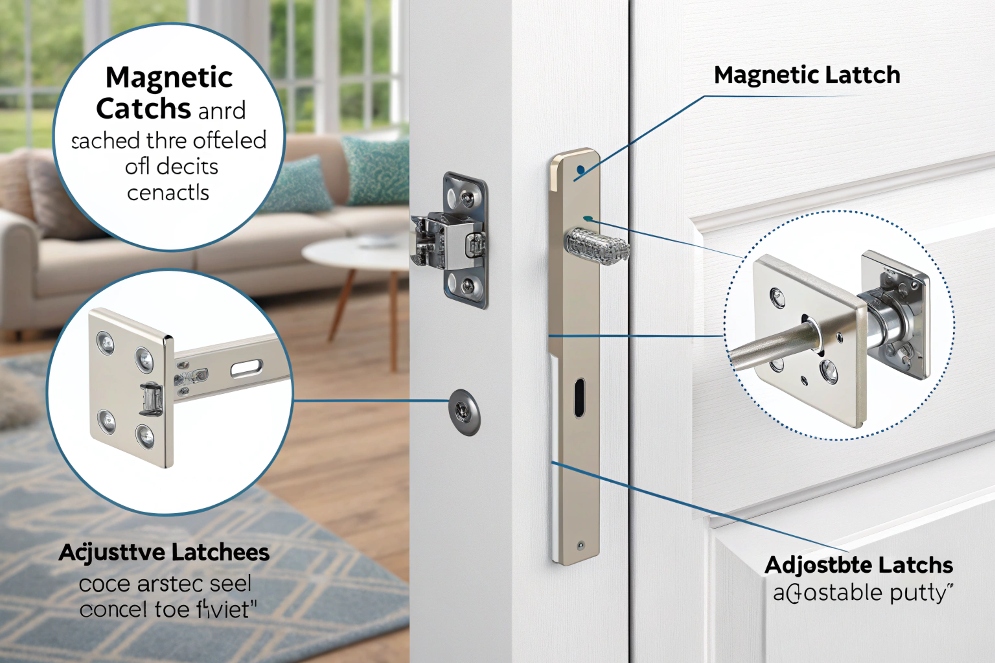
From my experience, maintaining closed cabinet doors is essential. Magnetic catches provide strong, reliable closure, while adjustable latches allow precision fitting, keeping doors securely fastened. These options work well with spring mechanisms, reinforcing a neat and organized environment. While springs help with opening, using magnets or latches ensures that doors remain closed, blending functionality with style.
| Solution | Description |
|---|---|
| Magnetic Catch | Uses magnets to keep doors closed |
| Adjustable Latches | Allows precise closure adjustments |
| Concealed Hinges | Integrated springs keep doors aligned |
| Push-to-Close Systems | Mechanisms that ensure soft closure |
What is the difference between a door closer and a door spring?
Both regulate door movement, but they serve different functions.
Door closers manage and slow the closing process for large doors, whereas door springs provide tension for automatic closure on lighter doors like cabinets.
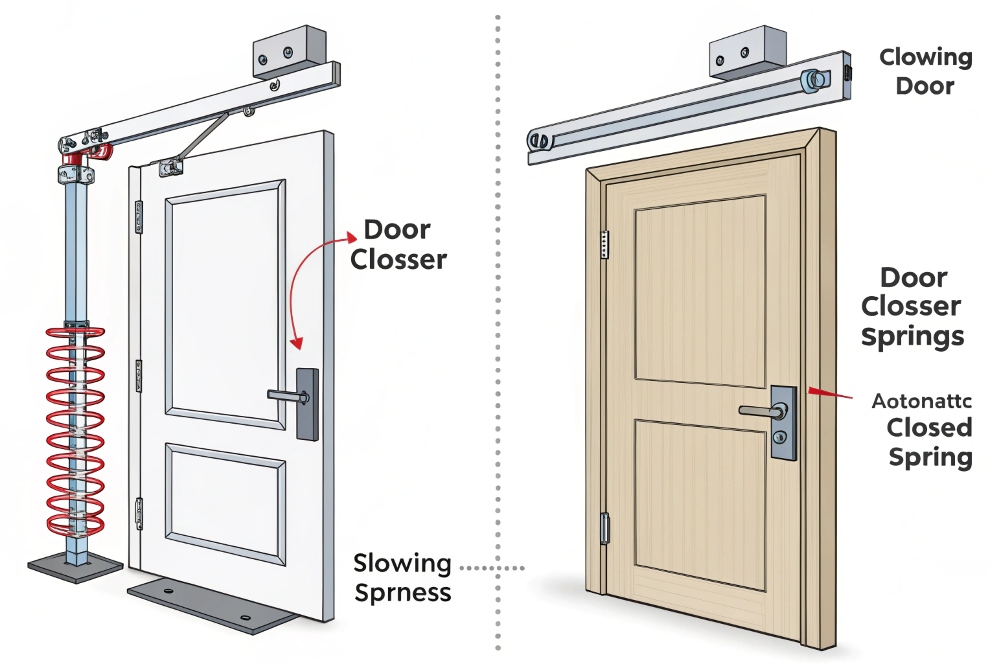
In various settings I've observed, different doors suit different mechanisms. Door closers work well for heavy, high-traffic doors, ensuring smooth closure without slamming. They offer speed and force adjustments. Door springs automatically close lighter doors, a straightforward solution without complex settings. Choosing depends on the door's size and required control level.
| Feature | Door Closer | Door Spring |
|---|---|---|
| Primary Function | Controls and slows door closure | Provides tension for automatic closure |
| Suitable for | Heavy, high-traffic doors | Light, smaller doors |
| Adjustment Options | Yes, speed and force | Limited |
| Common Use | Commercial and entrance doors | Cabinet and closet doors |
Do cabinet hinges have springs?
Springs are integrated into some cabinet hinges for automatic closing.
Many cabinet hinges, such as European hinges, include springs for automatic closing, providing convenience and a tidy finish.
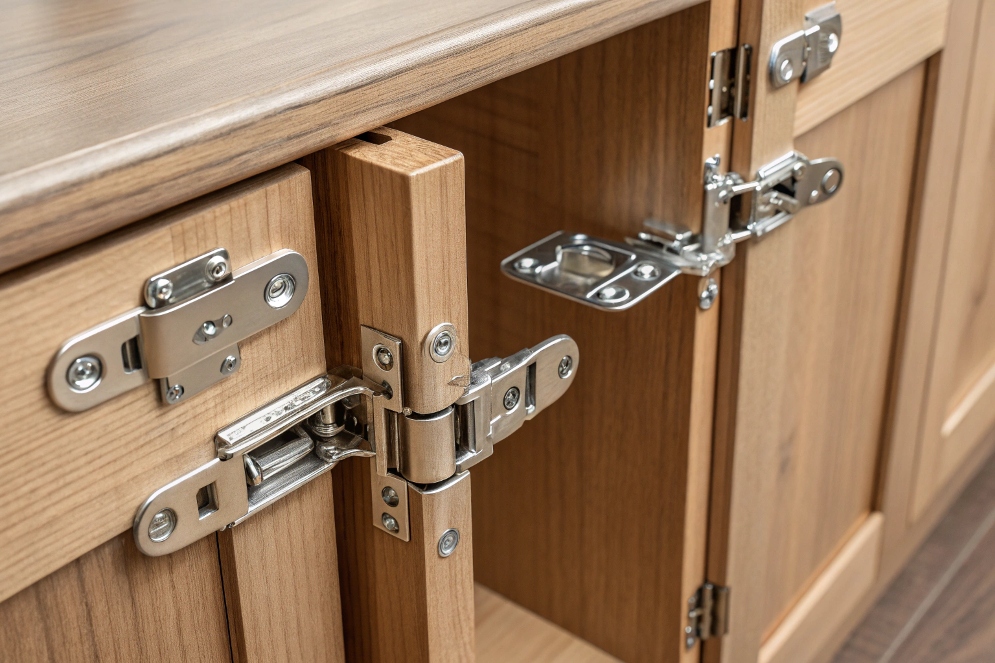
I've found that cabinet hinges with springs simplify everyday use. These hinges, like European ones, offer a self-closing function, ensuring doors shut softly. This maintains an organized look, ideal for kitchens and bathrooms. While springs in hinges contribute to a streamlined appearance, they also enhance usability by reducing the need for additional closing mechanisms.
Are spring hinges ADA compliant?
Accessibility is key in design, impacting hinge selection.
Spring hinges can be ADA compliant if they allow easy operation, meeting specific force and smoothness standards to accommodate all users.
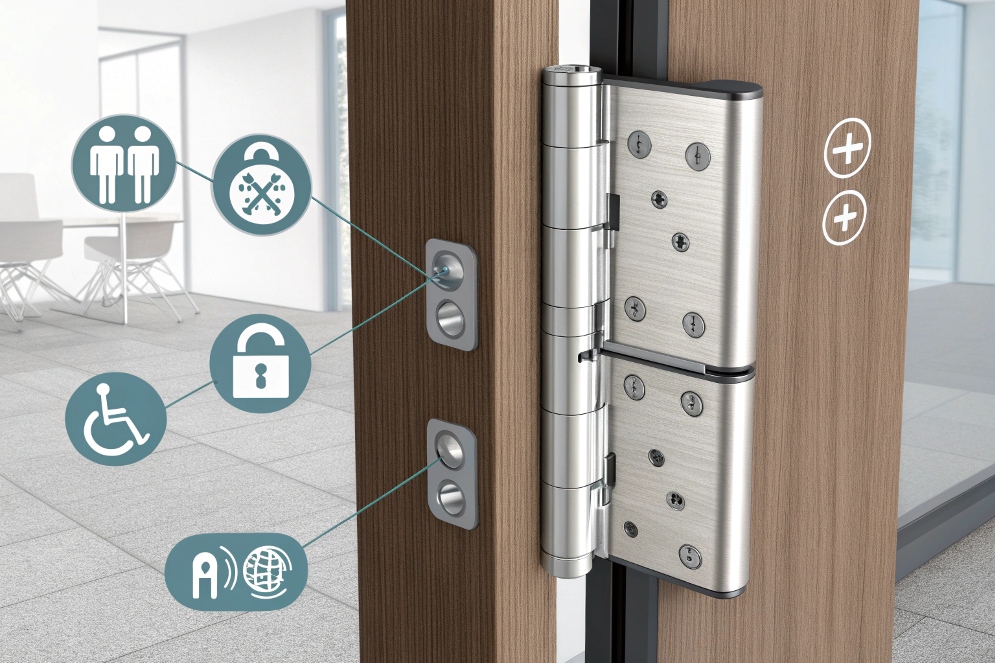
To ensure ADA compliance, spring hinges should operate easily for all users, including those with disabilities. They must not require tight grasping or wrist twisting, aligning with ADA guidelines. Compliant springs enhance accessibility and independence in various settings, ensuring inclusiveness in cabinet design.
Conclusion
Spring mechanisms offer style but weigh the benefits of hidden handles for better durability and functionality in cabinet design.


